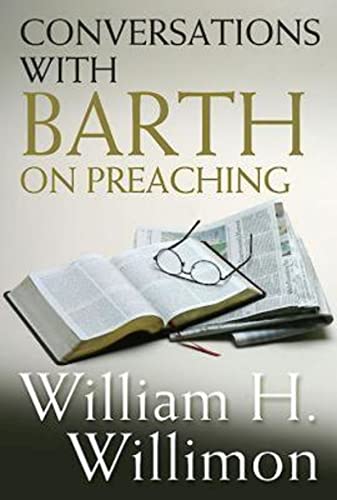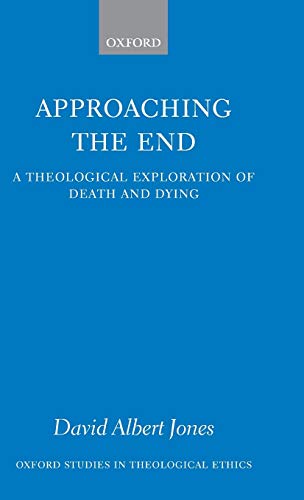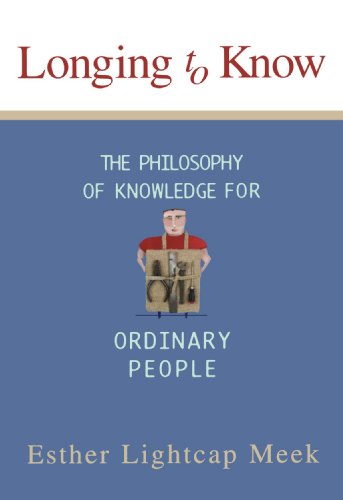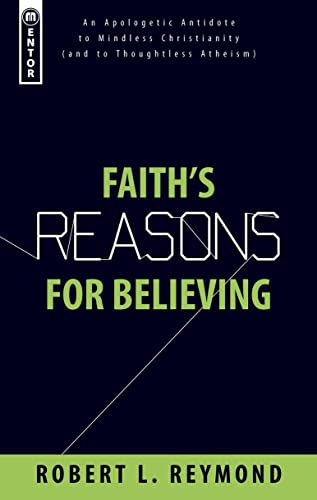Conversations with Barth on Preaching
Written by William H. Willimon Reviewed By Luke A. IjazWhat Barth has to say to the Church as a preacher and as an educator of preachers has largely been left unexplored. This present volume is a welcome way in for both theologians and preachers. But this is no academic study. In this book we discover as much about Willimon the preacher as we do Barth. At the outset Willimon’s claim is that ‘my subject is the proclamation of the Church rather than Karl Barth’ (p. 3), and in this study we see how this respected preacher-theologian has interacted with Barth and appropriated some of his insights into his own preaching ministry. It is no small claim that Barth ‘gave me something to say as a preacher, and, later, gave me a way to say it’ (p. 1). Yet Willimon is no ‘Barthian’ and can be openly critical in his analysis, writing in such a way as to invite us—and contemporary homiletics—into the same conversation. This stems from a sincere conviction that Barth really does have much to say by way of encouragement and empowerment for today’s preachers.
Barth’s fundamental conviction is that God wills to be known, and so he speaks—lots. He is not a Deus absconditus. God is the subject who speaks to us through his objective Word. These two must be considered together. The tendency is to so rely on the objective that we negate the subject who speaks through his Word. At the extreme this challenges our ability to communicate. Is communication through preaching a real possibility? If we hold to the subject of a speaking God we can have great confidence not only in its possibility but in its reality. From this arises what some might feel to be Barth’s overconfidence in the ability of the gospel to communicate itself.
Willimon helpfully unpacks how such confidence in a loquacious God might impact upon the character of our own preaching. The texts of various sermons are interspersed in each chapter, and these help us to appreciate the extent—and in what ways—Willimon is himself indebted to Barth. These reflect Willimon’s preference for narrative story form over proposition. However, he recognises that this is not the only form the sermon can take. One criticism he levels at Barth is not utilising the rich array of literary forms which Scripture itself uses to present the gospel.
An early chapter in the book provides a well-written overview of the history of epistemology, which is valuable in its own right. This might seem better placed as an appendix, but Willimon’s rationale for embodying it in the main text surely rests on the centrality of epistemology in Barth’s theology. Barth views sin and evil as noetical phenomena and as such faith tends to equate to ‘correct hearing’ in his thought. If we view Barth’s theological enterprise as one in the service of preaching (his own claim), epistemology is key. Hence Barth sees the preacher as a ‘herald of God’. He makes two difficult assumptions: one with regard to the preacher, the other the hearer. The preacher becomes an unnoticeable vessel—‘the messenger who is transparent to the message’ (p. 191). The hearer is one already reconciled to God in Christ, only without knowing it. So what is needed is a restatement of the gospel, not justification. Barth’s problem here is not so much his confidence in the gospel as his overconfidence in the ability of the herald to communicate the gospel affectively.
It is clear that Willimon is not with Barth in the above. Yet a problem that many theologians and preachers have today when it comes to appropriating Barth is simply not having read enough of him! On reading this book—which can be quite involved in places—it is not always apparent where Willimon is endorsing an insight of Barth or where he would counsel us to exercise caution. More is assumed than perhaps intended. Willimon has, after all, read and re-read Barth.
The conversation is at its most interesting when we engage Barth’s thought on apologetic preaching. It is here that many will part ways. But Willimon has already presented much of Barth’s general, overarching vision of preaching by this stage, which provides much food for thought—and a challenge. For those who take the task seriously, there is always the danger of producing sermons and talks which are so carefully polished, so well reasoned and complete in themselves that there is little left for God to do when we stand to preach. Willimon appreciates the danger but does not stand with Barth in response. Barth’s own strongly anti-apologetic stance is not reflexive but rather rooted in both his epistemology and attitude to natural theology. Yet many today preach in a climate where appreciating and addressing objections to the gospel is central to their proclamation, and with them Willimon himself sees reasons and defences working to both clarify and confirm, especially among those who already believe.
This book encourages us to begin a conversation with Barth, a conversation in which Willimon is still engaged. ‘Barth may not be as helpful to us as a homiletical role model than as an engaging and encouraging critic of our preaching’ (p. 158). We are helpfully reminded in this conversation that preaching is not primarily teaching or catechesis, neither is it ‘our assignment’, but rather we look to God to raise the dead.
Luke A. Ijaz
Wycliffe Hall, Oxford
Other Articles in this Issue
Though his primary concern was how to persuade people from diverse backgrounds to embrace the gospel of Jesus Christ (1 Cor 9:12, 23), Paul, nonetheless, embodies a principle common to all who would provide leadership to a community comprised of a multiplicitous collection of rigid truth claims and behaviors...
The Ethnic Enemy—No Greek or Jew . . . Barbarian, Scythian: The Gospel and Ethnic Difference
by Keith FerdinandoWhatever 'globalisation' may be, it has been accompanied by insistent and sometimes violent affirmations of ethnic identity...
Despite a small flurry of attention over the past decade, Adolf Schlatter (1852–1938), Tübingen professor of New Testament and author of more than 440 written works, remains one of the most neglected yet illuminating theological voices of the past one hundred years...
Commentators have customarily interpreted Phil 2:12 as a reference to "working out" one's personal salvation...
Salvation History, Chronology, and Crisis:1 A Problem with Inclusivist Theology of Religions, Part 1
by Adam SparksA fundamental requirement in an inclusivist understanding of the relationship between Christianity and other religions is evidence of God's salvific activity outside of any knowledge of Christ...







